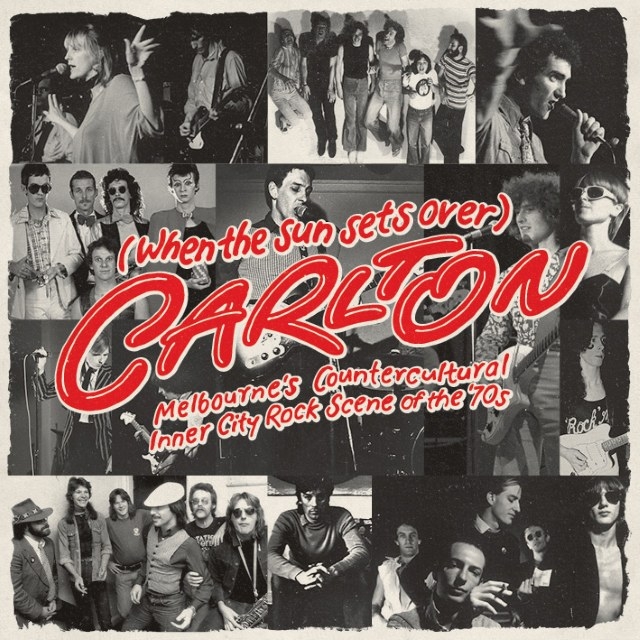Rudyard Kipling once mused that if history was told in stories, it would never be forgotten. The history of rock’n’roll is riddled with colourful stories of rebellion and resistance, of attitude and anger, of drugs and debauchery.
Melbourne rock’n’roll in the ‘70s is bookended by the denim and blues of Lobby Loyde and Billy Thorpe, and gothic provocative punk sneering of Rowland S Howard and Nick Cave. In between those pillars of historical celebration lies the oft-neglected alternative scene that brought forth such bands as Skyhooks, Mondo Rock, Jo Jo Zep and the Falcons, The Sports and The Dots.
(When the Sun Sets Over) Carlton breathes new life into the stories of Carlton’s Pram Factory, Martini’s and other haunts of Melbourne’s alternative music-cum-arts community. In among the pile of forgotten gems – Captain Matchbox Whoopee Band’s Roll that Reefer, The Indelible Murtceps’ Blue Movies and Relaxed Mechanics’ Truckin’ Casanova – are the seeds of a subsequent generation of Australian pop classics: The Sports’ Who Listens to the Radio, The Dots (featuring Paul Kelly) Lowdown, Martin Armiger’s I Love My Car, Jo Jo Zep and the Falcons’ Only the Lonely Hearted and Daddy Cool’s Saturday Night.
There’s an endearing melodic simplicity to many of the tracks, the original English R&B sensibility of the ‘60s still shining through in the compositions of Skyhooks’ Greg Macainsh and Daddy Cool’s Ross Wilson; the scene’s theatrical aesthetic can be seen in Eric Gradman Man and Machine and The Bleeding Hearts. And while Stephen Cummings, Martin Armiger and Paul Kelly were already serious musicians, there’s a comic edge in The Pelaco Brothers’ Mechanics in a Relaxed Manner, Fabulous Nudes’ I’ll Be a Dog For You, Baby and Company Caine’s Buzzin’ With My Cousin that remains endearing.
To listen to this compilation is to be transported back to an almost forgotten era, before inane electronic communication became the fig leaf of meaningful social discourse, when social upheaval still walked in concert with considered artistic expression. Carlton isn’t what it used to be, but the sun hasn’t set on the legacy of its one-time vibrant countercultural scene quite yet.
BY PATRICK EMERY







